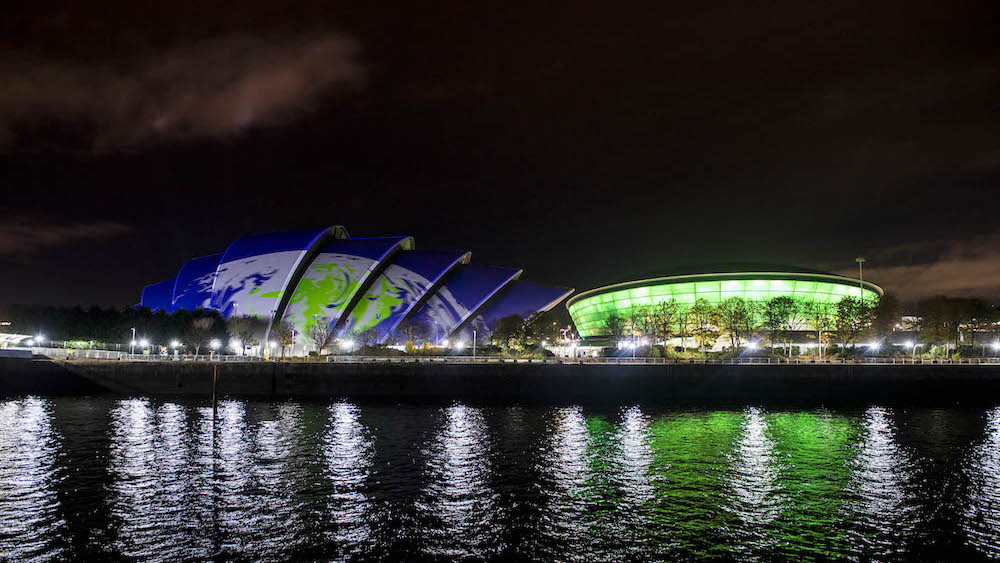
The Scottish Event Campus in Glasgow, which served as host venue of the 2021 United Nations Climate Change Conference, or COP26, has committed to the goal of achieving net zero by 2030.
The business events industry, at large, is comprised of women — 77 percent, according to the U.S. Census Bureau. But some spaces are quite the opposite, particularly facility management, where just 21 percent are women, according to the U.S. Bureau of Labor Statistics. We’re spotlighting women who have worked their way up to the top spots at convention centers around the world, and up next is Kathleen Warden, director of conference sales at the Scottish Event Campus in Glasgow, Scotland.

‘I thrive on making progress, and the conventions industry is deeply rooted, fundamentally, in delivering social, economic, and environmental progress.’ — Kathleen Warden
When it comes to leadership in the events industry, there is quite a bit of gender disparity, especially facility management. Why do you think that is, and what needs to change in the industry to close that gap? In addition to your skills and capabilities, to what would you attribute your success in a male-dominated sector of the business events industry? What attracted you to this side of the business?
I’m pleased to say that the SEC executive team is very balanced in terms of gender. We have a CEO and six directors — 50 percent of the directors are women. We seem to be bucking the trend. We have always believed in nurturing our talent and all three of our women directors have progressed through the business and been promoted to director level. In my view, women who reach more senior levels within businesses have a great deal of drive and determination in addition to all the relevant role-related competencies, and this drive and determination to succeed is what takes them all the way to the top.
I love working at the Scottish Event Campus. Like most of us, I came into the industry by default rather than by design but found my home immediately when I joined the business. I thrive on making progress, and the conventions industry is deeply rooted, fundamentally, in delivering social, economic, and environmental progress. After 22 years in the business, I still can’t wait to get to work in the morning.
What is the biggest challenge convention facilities are facing right now? What do you see as your biggest opportunity?
The biggest challenge we face is climate change. I believe in the next five years, the natural disasters we will see around the world will make people think hard about their travel choices. However, as people become more selective about how often they get on a flight, the purpose of travel will be in sharp focus. This means that our events need to be all the more compelling, and that will drive stronger and more valuable content to attract attendees, which will, in turn, amplify the value of conferences and conventions. That’s a great opportunity for our industry to bring even greater value to society.
Our cover story in our March/April 2022 issue highlights how the design and functionality of convention facilities is changing because of the pandemic and the evolving needs of groups. From your perspective, what do you predict will change at your facility, as well as at convention centers as a whole?
Several things:
- There is an opportunity for venues to contribute to significant carbon reductions in the industry by developing a strategy to transition to green and renewable energy sources. This is something we are very focused on at the SEC. The current fuel price crisis has further highlighted the need to transition away from fossil fuels. I think we will see a big change in venues on the type of energy used.
- Technology will also be one of the big game changers. The opportunities for enhancing experiences and creating a better learning environment at conferences are boundless through the adoption of VR and AR. This is very exciting.
Jennifer N. Dienst is senior editor at Convene.
More Women Leaders
Find more stories from Convene Senior Editor Jennifer N. Dienst’s series on women leaders at convention centers.
